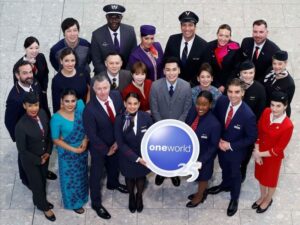
Airport lounge access rules and other frequent flyer benefits can be difficult to understand at the best of times. You just have to look at AFF’s Help Desk thread dedicated to lounge access questions which has more than 3,000 posts.
It’s bad enough when airline staff incorrectly refuse lounge access because they didn’t follow their own rules. This is one of the easiest ways to piss off frequent flyers as it’s both embarrassing and difficult to compensate for.
It’s almost as bad when airlines change policies or create exceptions to rules, but don’t make that information available anywhere. (This doesn’t just apply to airlines – loyalty programs and many other businesses do the same.)
Exceptions that aren’t published anywhere
For example, I recently flew with KLM and expected to receive an additional checked baggage allowance through my Qantas Platinum status. The Qantas website states that this benefit is available “when travelling with KLM”, and there’s no fine print on the page to suggest there would be any exceptions. But when I checked in at the airport, the KLM staff told me I had no baggage allowance. I later asked Qantas about this, and they told me only QF codeshare flights qualified for Qantas status benefits.
If that’s the rule (and I’m still not 100% sure), then that’s fine. But how is anyone supposed to know this? It isn’t mentioned on any web page available to the public.

In another example, LATAM’s website states that LATAM Pass Platinum, Black and Black Signature members can access “all Qantas VIP lounges, available only for passengers flying with LATAM or Qantas”.
There is no fine print on that LATAM page suggesting that there might be some exceptions. But as it turns out, there are a lot. Again, how are LATAM Pass members meant to know this?
There are lots more examples of invisible fine print…
I could give you lots more examples, but here are just a few more.
Recently I tried to redeem my Etihad Guest miles for a one-way flight on Asiana. I called Etihad and they confirmed availability, but they couldn’t process the booking. Turns out that Etihad doesn’t allow one-way award bookings on Asiana. This restriction is not mentioned anywhere on Etihad’s website. Even the call centre didn’t know about it – until my booking failed.
During the pandemic, both Qantas and Virgin Australia suspended airport lounge access on arrival. Yet, both airlines were still advertising this benefit on their websites, with nothing to indicate it was suspended.
Here’s another one. When you want to credit a flight to a partner airline, you need to check which fare class you’re booking because some are ineligible to earn anything. But there are quite a few airlines, including Qantas, that do not display the fare class when you book on their websites. There is no way to be sure what fare class you’re booking – only various workarounds to try to guess it.
In a particularly egregious example, Hertz last year changed the way its Gold Plus Rewards points expire retrospectively. Instead of 18 months, members suddenly needed to rent a car at least every 12 months to prevent points from expiring. Unfortunately, Hertz implemented this change with no notice, causing many members to suddenly lose their points without warning.
For weeks after this change, the Hertz Gold Plus Rewards terms & conditions still said that points wouldn’t expire unless a member had no account activity for 24 months. Hertz didn’t even bother updating the fine print on its website until around six months later.

It’s not always bad news that’s hidden, though. For example, sometimes frequent flyers might actually have access to more lounges than advertised on the airline’s website.
Loyalty program members deserve access to accurate information
In most of the cases mentioned in this article, I genuinely don’t believe that the loyalty program was deliberately trying to be deceitful. Some of these are niche benefits listed on webpages that probably just haven’t been updated for a while.
At the same time, it’s incredibly frustrating for members when a loyalty program advertises one thing but delivers something else. Perhaps loyalty programs should take a bit more care in providing up-to-date information that won’t cause disappointing surprises.
It’s one thing for loyalty programs to list exceptions in the fine print. But when that fine print is invisible, even to people who specifically look for it, that’s treating customers like fools.
















































































Community Comments
Loading new replies...
Join the full discussion at the Australian Frequent Flyer →